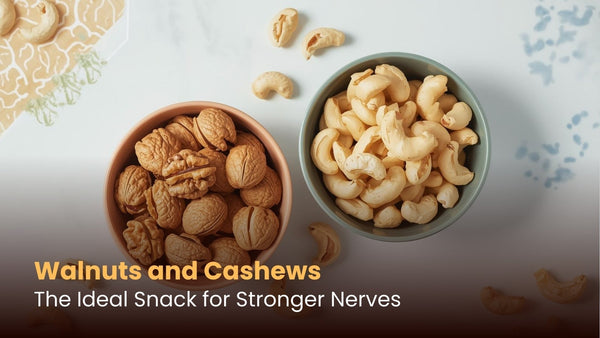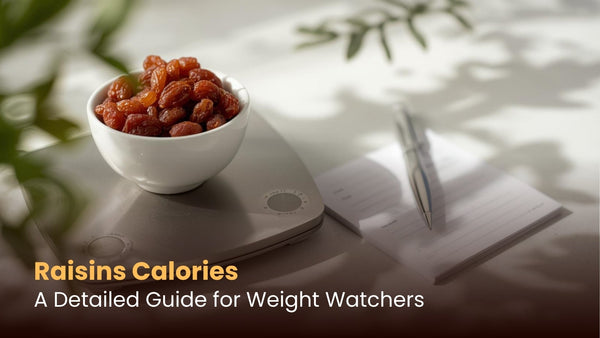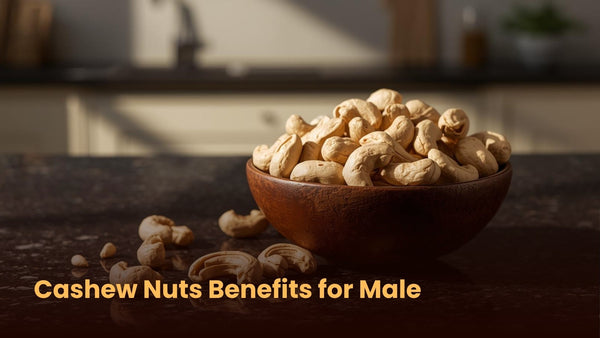Raisins and dry dates are two nutritious dried fruits commonly enjoyed as snacks or added to various dishes. Both are rich in natural sugars, fiber, and essential nutrients, making them a great choice for boosting energy and supporting overall health. While they share some similarities, each fruit offers distinct nutritional benefits, which can make one a better fit for specific health goals. Let’s explore the nutritional value of raisins and dry dates to understand how each one contributes to a balanced diet.
Table of Contents
-
Introduction
-
Nutritional Value of Raisins and Dry Dates
-
How Raisins and Dry Dates Improve Digestion
-
The Role of Fiber in Gut Health
-
Health Benefits of Raisins and Dry Dates Beyond Gut Health
-
How to Incorporate Raisins and Dry Dates into Your Diet
-
Conclusion
-
FAQs
Nutritional Value of Raisins and Dry Dates
Raisins:
Raisins are dried grapes and are an excellent source of vitamins, minerals, and antioxidants. A serving size of about 1 ounce (28 grams) provides:
-
Calories: 85 calories, mainly from natural sugars.
-
Carbohydrates: 22 grams, with a high sugar content of 17 grams, offering a quick energy boost.
-
Fiber: 1 gram of fiber, aiding in digestion.
-
Vitamins and Minerals: Rich in potassium (212 mg) and iron (0.8 mg), supporting heart health and red blood cell production.
-
Antioxidants: Contain polyphenols, particularly flavonoids, which have antioxidant and anti-inflammatory properties.
Dry Dates:
Dry dates are another nutrient-dense fruit, offering several health benefits. A typical serving of 1 ounce (28 grams) provides:
-
Calories: 77 calories, mainly from natural sugars.
-
Carbohydrates: 21 grams, with 16 grams of sugar for an energy boost.
-
Fiber: 2 grams of fiber, which is higher than raisins and supports digestion and blood sugar management.
-
Vitamins and Minerals: High in potassium (167 mg) and magnesium (15 mg), promoting heart and muscle health. Dates are also a good source of copper (0.2 mg), supporting red blood cell production.
-
Antioxidants: Rich in flavonoids, carotenoids, and phenolic acids, offering anti-inflammatory and antioxidant benefits.
Both raisins and dry dates provide numerous health benefits but vary in their fiber content, mineral makeup, and antioxidant profiles. These differences can help guide you in choosing the right dried fruit based on your specific nutritional needs.
How Raisins and Dry Dates Improve Digestion
Raisins and dry dates are both packed with natural sugars, vitamins, and minerals, making them not only a delicious snack but also beneficial for digestive health. These dried fruits have long been used in traditional medicine for their ability to support the digestive system.
Raisins, for example, are high in dietary fiber, which adds bulk to stool and aids in regular bowel movements. They also contain natural sugars like fructose and glucose, which act as mild laxatives. This makes raisins an excellent choice for individuals who suffer from constipation, as they help in softening stool and promoting easier passage. In addition, raisins are rich in tartaric acid, which has been shown to have digestive-stimulating properties, promoting the efficient breakdown of food in the stomach.
Dry dates, on the other hand, are a rich source of soluble fiber, which is particularly effective in absorbing water and forming a gel-like substance in the intestines. This gel helps to regulate bowel movements and can alleviate issues such as diarrhea and constipation. Dates also contain tannins, a type of polyphenol that aids in reducing inflammation in the intestines, which can help with digestive discomfort.
Together, raisins and dry dates support digestion by improving gut motility, relieving constipation, and balancing bowel movements, making them an excellent addition to a healthy diet.
The Role of Fiber in Gut Health
Fiber plays a crucial role in maintaining a healthy digestive system, and it’s an essential component of any balanced diet. There are two types of fiber: soluble and insoluble, both of which contribute differently to gut health.
Soluble fiber dissolves in water and forms a gel-like substance in the stomach. This type of fiber helps to slow down digestion, which can be beneficial for regulating blood sugar levels and improving cholesterol levels. It also plays a significant role in absorbing excess water in the intestines, making stool easier to pass and reducing the risk of diarrhea. Foods like oats, beans, and fruits such as dry dates are excellent sources of soluble fiber.
Insoluble fiber, on the other hand, does not dissolve in water and adds bulk to stool, which helps to speed up the passage of food and waste through the digestive tract. This type of fiber is particularly effective in preventing constipation and promoting regular bowel movements. It also helps in the prevention of diverticulosis and other gastrointestinal disorders. Whole grains, nuts, and vegetables are rich in insoluble fiber.
Both types of fiber work together to promote a healthy gut by supporting bowel regularity, enhancing nutrient absorption, and preventing digestive issues. In addition, a high-fiber diet has been linked to a reduced risk of developing conditions such as colorectal cancer and heart disease. By incorporating fiber-rich foods like raisins, dry dates, and other fruits, vegetables, and grains into your daily diet, you can significantly improve your gut health and overall well-being.
Health Benefits of Raisins and Dry Dates Beyond Gut Health
Raisins and dry dates are not just great for digestive health; they offer a wide range of benefits that support overall well-being. Both are rich in natural sugars, fiber, vitamins, and minerals that provide various health advantages beyond gut health.
-
Rich Source of Antioxidants
Raisins and dry dates are packed with antioxidants like flavonoids, polyphenols, and phenolic compounds that help fight oxidative stress in the body. These antioxidants play a key role in protecting cells from damage caused by free radicals, thus lowering the risk of chronic diseases like heart disease and certain cancers. -
Boosting Bone Health
Both raisins and dry dates are excellent sources of minerals like calcium, magnesium, and phosphorus, which are vital for maintaining strong and healthy bones. These minerals support bone density and help prevent conditions such as osteoporosis. -
Supporting Heart Health
Raisins contain potassium, which is essential for regulating blood pressure. They also contain small amounts of magnesium, which helps relax blood vessels and improve blood circulation. Dry dates, on the other hand, contain dietary fiber, which can help lower cholesterol levels and reduce the risk of heart disease. -
Improved Iron Absorption
Raisins and dry dates are rich in iron, making them an excellent food choice for individuals looking to increase their iron intake, especially those with anemia. The high vitamin C content in both also aids in better absorption of iron, making them even more effective in supporting healthy red blood cell production. -
Natural Energy Boost
Both raisins and dry dates are high in natural sugars such as glucose and fructose, which provide quick and sustained energy. This makes them a great option for athletes or anyone in need of an energy boost during a busy day. They provide a healthier alternative to processed sugary snacks. -
Blood Sugar Regulation
Although both raisins and dry dates contain natural sugars, they have a low glycemic index, meaning they release sugar into the bloodstream slowly, helping regulate blood sugar levels. This makes them a good snack option for people with diabetes when eaten in moderation.
How to Incorporate Raisins and Dry Dates into Your Diet
-
As a Snack
Raisins and dry dates can be enjoyed on their own as a quick, healthy snack. They’re portable, easy to store, and naturally sweet, making them a great option for satisfying your sweet tooth without the need for processed sugar. -
In Smoothies
Add a handful of raisins or chopped dry dates to your favorite smoothie. They pair well with fruits like bananas, berries, and apples, providing extra sweetness and boosting the nutritional content with fiber, vitamins, and antioxidants. -
As a Topping for Breakfast
Sprinkle raisins or chopped dry dates on top of your oatmeal, yogurt, or cereal. They add a natural sweetness and enhance the fiber and nutrient content of your morning meal. You can also mix them into pancake or waffle batter for a delicious twist. -
In Baked Goods
Raisins and dry dates can be incorporated into baking recipes, such as muffins, cookies, cakes, or granola bars. They bring a naturally sweet flavor and chewy texture to your baked treats. You can also replace processed sugar with chopped dates for a healthier, more wholesome alternative. -
In Salads
Both raisins and dry dates add a pleasant sweetness to salads. They pair especially well with leafy greens, nuts, and cheese. You can toss them into quinoa or couscous salads to enhance the flavor profile and nutritional value. -
In Cooking and Stews
Raisins and dry dates can be added to savory dishes, especially in Middle Eastern or Mediterranean cuisine. They are often used in stews, tagines, or rice dishes to add a sweet contrast to savory spices and meats like chicken or lamb. -
In Energy Bars and Trail Mix
Raisins and dry dates are perfect additions to homemade energy bars or trail mix. They provide natural sugars and fiber that can keep you energized during long hikes or workouts. Combine them with nuts, seeds, and dark chocolate for a balanced snack.
Conclusion
Raisins and dry dates are not only delicious but also packed with essential nutrients that promote gut health. Their high fiber content aids digestion, helps regulate bowel movements, and supports overall gut function. In addition to their digestive benefits, these dried fruits are rich in antioxidants, vitamins, and minerals that contribute to overall health. Including raisins and dry dates as part of your diet can be a simple and effective way to improve gut health. For high-quality, naturally sourced dried fruits, Krishival offers premium raisins and dry dates that can be enjoyed as a healthy snack or incorporated into various dishes.
FAQs
-
What are the health benefits of raisins?
Raisins are packed with fiber, which supports healthy digestion and regular bowel movements. They also contain antioxidants that help protect the body from oxidative stress and are a good source of vitamins and minerals like potassium and iron. -
How do dry dates improve gut health?
Dry dates are rich in soluble fiber, which helps regulate digestion and maintain healthy bowel movements. The high fiber content also promotes the growth of beneficial gut bacteria, contributing to better overall gut health. -
Can raisins help with constipation?
Yes, raisins are a natural remedy for constipation due to their high fiber content. The fiber in raisins helps add bulk to stool and facilitates its smooth passage through the digestive tract, reducing constipation. -
Are dry dates good for boosting energy levels?
Dry dates are an excellent source of natural sugars like glucose and fructose, which provide an immediate energy boost. They also contain important nutrients like potassium and magnesium that support energy production in the body. -
How much fiber do raisins contain?
One ounce (28 grams) of raisins contains about 1.5 grams of dietary fiber. Consuming raisins regularly can help improve digestive health by promoting regular bowel movements and supporting overall gut function. -
Can raisins and dry dates help with weight loss?
Both raisins and dry dates are rich in fiber, which can help you feel fuller for longer, reducing the likelihood of overeating. While they are relatively high in sugar, their fiber content makes them a satisfying snack that supports weight management when eaten in moderation. -
Are dry dates beneficial for heart health?
Yes, dry dates are a good source of potassium, which helps regulate blood pressure and maintain heart health. Additionally, their fiber content contributes to lower cholesterol levels, which can further reduce the risk of heart disease. -
How can I include raisins and dry dates in my diet?
You can enjoy raisins and dry dates as snacks, add them to oatmeal, yogurt, or smoothies, or incorporate them into baked goods like muffins and cakes. They also work well in salads, granola, and energy bars. -
Are raisins and dry dates suitable for diabetics?
While both raisins and dry dates are naturally sweet, they have a low glycemic index, meaning they don’t cause rapid spikes in blood sugar. However, it’s important for diabetics to consume them in moderation as part of a balanced diet to avoid excess sugar intake. -
How should raisins and dry dates be stored to maintain freshness?
Both raisins and dry dates should be stored in an airtight container in a cool, dry place. For longer shelf life, they can be refrigerated or frozen, which helps retain their flavor and nutritional content.











Share Your Thoughts